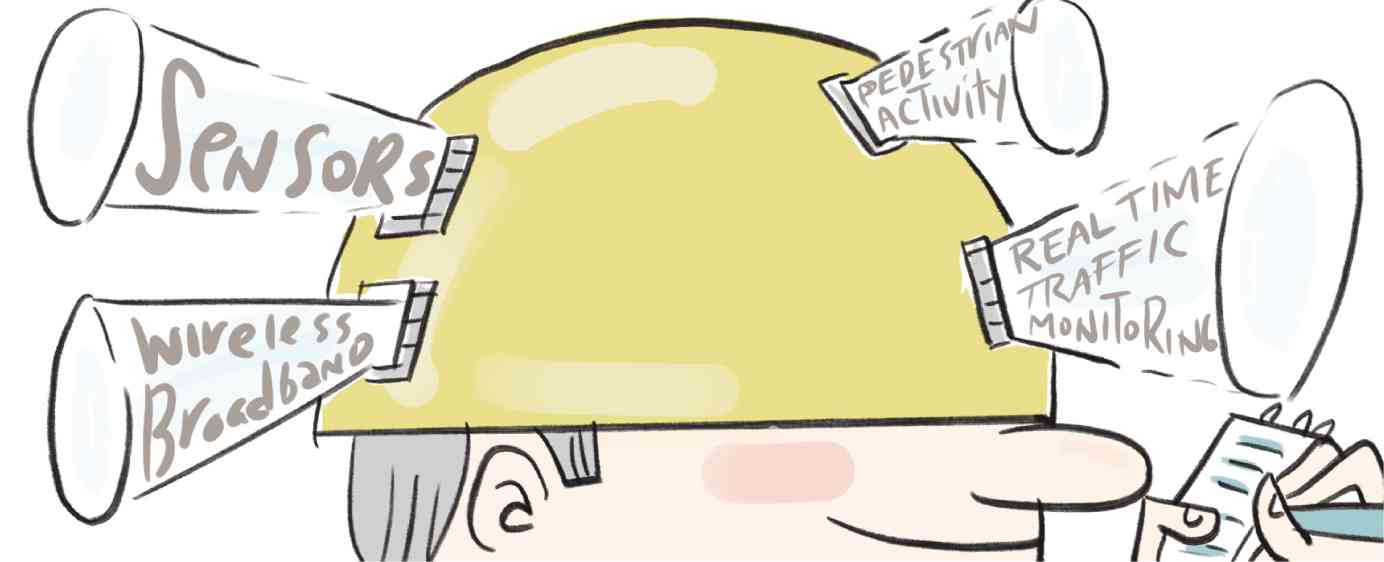Is the PH ready for smarter cities?
We often hear about smart cities, but what does this mean?
“Smart” is usually tied to advanced infrastructure and mobility, integrated systems, and data-based planning for cities. While utopian city visions are often desired, there are many things we have to consider about this urban concept.
Moving towards smarter growth requires optimizing our environments to input data into our planning systems. This can be done in different ways and in different scales—from grand city marvels to house-level technology. Think the “Internet of Things.” Think utopia.
To illustrate, streets and public spaces can use sensors to measure pedestrian activity or detect movement to activate lights. Utilities such as wireless broadband are everywhere, making access to information very easy. An analysis of our water and air composition is now possible, as is real-time tracking of traffic. Even within the home, appliances and gadgets can determine our activities and preferences—from changing house temperature to sleeping patterns.
It’s not just about advancing the physical aspect of our cities. Governments and the private sector can benefit from so much data which, when processed, can improve efficiency. In resilience building, technology can greatly aid emergency management and disaster risk reduction efforts. In an economic perspective, a workforce can eliminate many redundancies.
The current landscape
There is great potential in moving towards smart cities because ways to improve various systems are endless. However, continuous improvement without any possibility of transgression also poses challenges in leading cities worldwide. For example, sensors would create tremendous energy requirements. Also, current utilities—power grids and water systems—would need to transform and adapt towards systems that can respond to influxes of data.
If this is the case, it would be best to ask how we can move cities in a developing country to become smart.
Let’s take Bonifacio Global City as an example of how we’ve started designing our cities. While this has been a success in terms of a better and more systemized environment, bringing in multinational companies, and following the practices of phasing and sustained management, it still fell short in some very important city aspects, such as providing inclusive housing and commodities that nonelitist communities can afford.
The “real city” crowded around the global city, creating more informal environments that cater to workers and commuters who go to work within BGC.
In determining our readiness for smarter growth, a first step would be to ask what we’ve learned from our designed cities’ mistakes, and how to move forward with new projects, such as the New Clark City, for example.
From a social perspective
Creating cities with a social perspective is something that many of our developers can input into their projects. Take the supposedly smart model city of Songdo in South Korea, which heavily invested in technology and systems. Today, it is criticized because of how difficult it is for its residents to meet neighbors; there are hardly any vibrant communities that enliven the environment. Loneliness on a wide scale has become a problem.
Creating smart cities also have the potential of undermining democracies, given how the last decades in the new urbanism movement have given rise to urban chaos and exclusivity, to the detriment of the culture and identity at the eye-level of our streets and cities. We can build and design all we want, and we can always move towards technology and future-proof cities. But this type of growth is not the only context of “development.” It also means leaving no one behind—and that includes the mass populations of the country, including our farmers and fisherfolk, tricycle drivers and street vendors.
Would they have places in the cities that we build?

